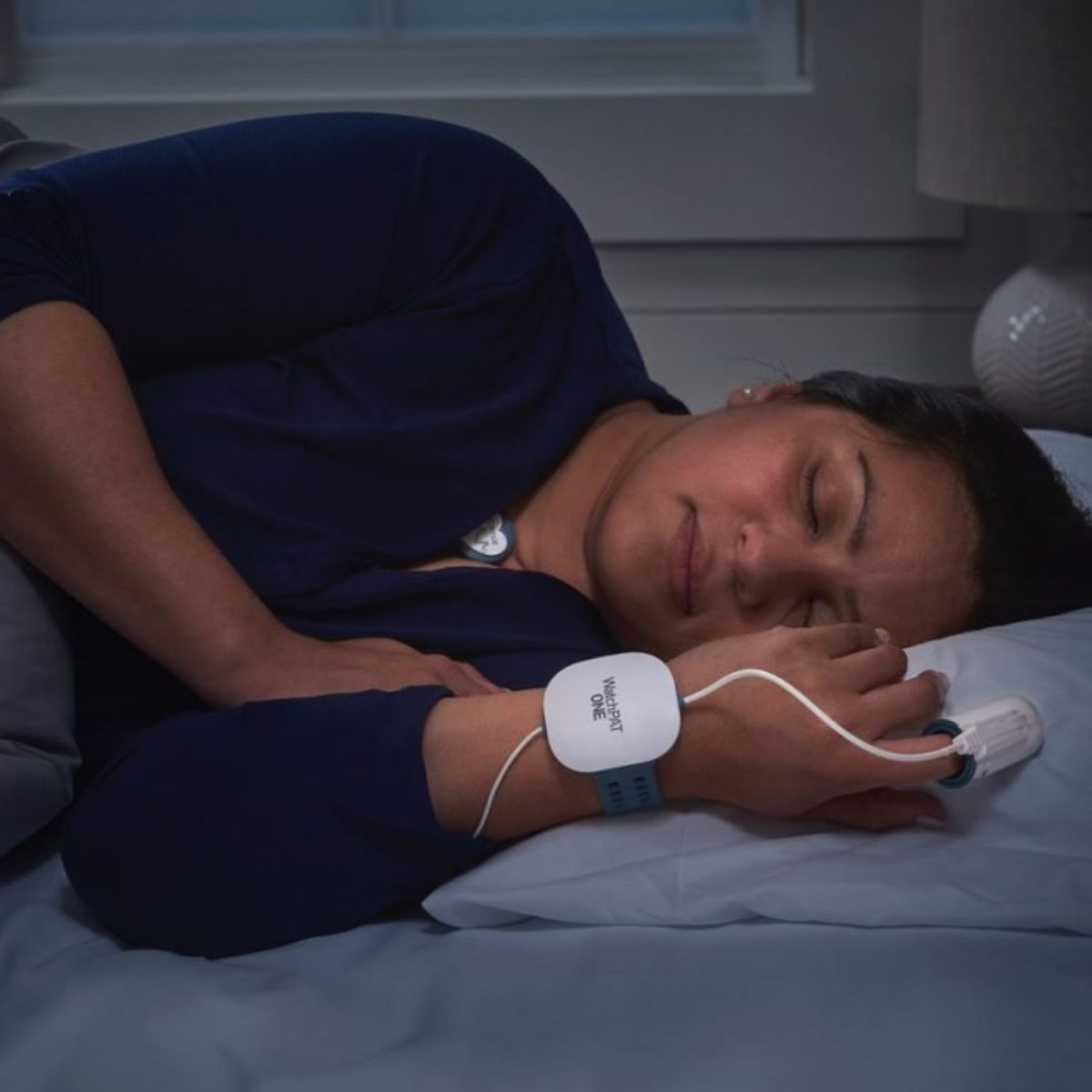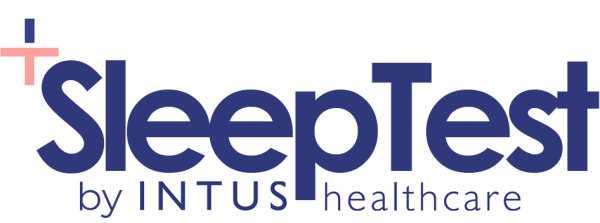Last updated on January 7th, 2025 at 04:13 pm
The most common reference to a sleep study usually involves the NHS sleep study at a sleep clinic.
The NHS sleep study
Sleep clinics can provide you with the necessary resources to help you get a better night‘s sleep. If your GP thinks you have Sleep Apnoea, they will refer you to a sleep clinic.
A sleep clinic is a healthcare facility specialising in diagnosing and treating sleep disorders. Sleep clinics offer various services, including sleep studies, consultations with sleep specialists, and treatments for sleep disorders. They often have specially trained staff knowledgeable about the latest techniques and treatments for sleep disorders.
Alternative to an NHS sleep study is our In-Home Sleep Test
When ordering our home sleep test, you will receive a machine posted to your home that measures the oxygen level in your blood, heart rate, etc.
The simple home sleep test takes just one night to complete from the comfort of your own home.
Our trained NHS clinicians will analyse your test results and advise whether you need further testing for Sleep Apnoea or are suffering from OSA and need treatment (possibly CPAP therapy) in 2 working days.

Overnight testing at a sleep centre/sleep clinic
If your NHS home sleep test has shown you need further testing, you will have your breathing tested overnight in a local sleep centre.
Every person in a sleep centre is tested using safe, hygienic equipment, including a disposable mouthpiece. You can rest assured that highly-trained healthcare professionals will run your tests. They will make sure the equipment gives an accurate result.
The staff will keep you comfortable throughout your test.
Sleep specialists will ask about your medical history and Sleep Apnoea symptoms and physically examine you. They will measure your height and weight to determine your body mass index and neck circumference as these are all factors in Obstructive Sleep Apnoea.
The sleep specialists will then arrange for you to stay in the sleep centre overnight. Your doctor may request a respiratory sleep test, polysomnography, and an OSLER test.
Keep this in mind:
- Your doctor will use the test results, your medical history, symptoms and examination results, and X-rays and scans to guide your treatment.
- Each person is different, and you may need more or fewer tests. In some cases, a test is done once. In other cases, the test must be repeated to monitor changes over time or to observe your body’s response to treatment.
- Your healthcare professional can explain your test results to you. If you don’t understand, keep asking questions until you do.
Respiratory Sleep Test
A respiratory sleep test is used to diagnose Obstructive Sleep Apnoea (OSA). While you sleep, you’ll wear some equipment to record your oxygen levels, breathing movements, heart rate and snoring.
Your doctor may want to know your carbon dioxide levels while you sleep. So, you may wear a small clip in your earlobe and have a blood gas test when you wake up.
Polysomnography
Polysomnography is a more complex sleep analysis test designed to:
- Assess sleep and wakefulness – measuring your brain waves, eye movements and muscle movements.
- Assess your heart and breathing – measuring your airflow, chest wall motion, oxygen levels and heart activity.
- Record video and audio footage.
Polysomnography is needed when basic tests haven’t given precise results. It’s also helpful if you make abnormal movements or do strange things while asleep. Some equipment will be attached with tape, wires, and straps to take the measurements while you sleep.
If your doctor feels it’s necessary, your sleep specialist may ask you to stay in a hospital after the overnight stay for a multiple sleep latency test. This involves napping for periods of 20 to 30 minutes at set times.
Your sleep specialist may want to know how alert you are during the day and how easily you fall asleep. A ‘maintenance of wakefulness test’ may be performed the day after your overnight stay. You’ll be asked to stay awake as long as possible while sitting in a quiet, relaxing, semi-darkened room.
OSLER test
An Oxford sleep resistance (OSLER) test measures how long you can stay awake in favourable conditions to fall asleep. This test is performed during the daytime.
You will be asked to lie in a darkened room without any noise. You will have a handheld box that needs to be repeatedly activated every time you see a red light.
Your sleep specialist care
Remember that these tests will help your doctor understand what’s happening when you sleep. And the tests will help you get the treatment you need. When sleep is severely disturbed, and breathing is halted so frequently, it takes a toll on your body. With these tests, your doctors will better know how to help you so you get the rest you need to stay healthy.
Your bed partner will appreciate it when you get treatment, as the snoring will stop. Everyone will feel better rested, healthier and happier.


